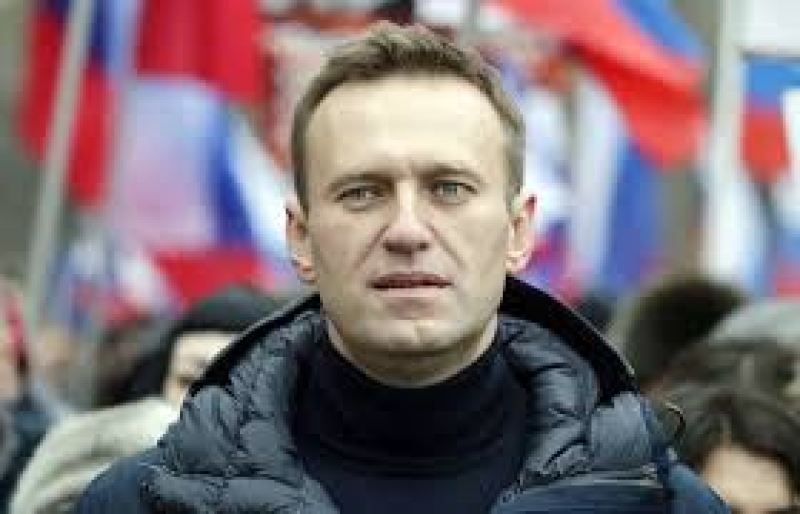- Human Rights Record ‘Alarming’ Over 17 Months, Says HRSS |
- Tarique Warns of Deep Plot, Urges Vigilance Nationwide |
- Son of late ruler Gadhafi is killed in Libya |
- Special prayers, foods, charity mark Shab-e-Barat in Old Dhaka |
- Exiled Awami League Leaders Plan Political Comeback from India |
Navalny's body reportedly returned to his mother

The body of dead Russian opposition figure Alexei Navalny was reportedly handed over to his mother on Saturday.
A spokesperson for Navalny's team said funeral arrangements would be determined soon, saying it was unclear whether Moscow would interfere.
Before handing over the body of Navalny, who died suddenly under mysterious circumstances in a remote Siberian prison camp on February 16, authorities had threatened his mother, reportedly telling her that if she refused to bury the body quietly they would not turn it over, and would instead bury his body at the prison camp.
Family fought for return of Navalny's body
Navalny's widow, Yulia Navalnaya, on Saturday accused Russian President Vladimir Putin of "torturing" her mother-in-law.
Navalnaya said "Give us the body of my husband. You tortured him alive, and now you keep torturing him in death. You mock the remains of the dead."
Navlnaya said that Putin, himself an Orthodox Christian, was mocking his faith by refusing to allow Navalny's family the right to a religious memorial, which among Orthodox Christians takes place on the ninth day after death.
Prison officials had told the deceased politician's mother that she should hurry with her decision as her son's body was beginning to decompose.
The reported communication from Russian officials suggests that the Kremlin does not want to see a large funeral for Navalny who was one of Putin's most popular opponents.
Authorities crack down on Navalny memorials
As Russians around the country quickly set up impromptu memorials for the fallen politician, a cat-and-mouse game began in which dozens have already been arrested and in which men clad in black have regularly appeared to collect and dispose of flowers, candles and images of Navalny left in public places by his supporters.
In Moscow, for instance, mourners at the city's Christ the Savior Cathedral on Saturday were greeted by police who took down their names and addresses.
Kremlin spokesman Dmitry Peskov on Friday, rejected accusations that President Putin was behind Navalny's death, calling such claims "absolutely unfounded."
Prison authorities said Navalny had died of natural causes on Friday after a walk on the prison grounds, saying he had succumbed to "sudden death syndrome" after feeling lightheaded.
From unknown to YouTube star to Russia's public enemy number 1
Navalny built a following in Russia while engaged in his anti-corruption campaign, which produced slick videos purporting to document abuses of power by the country's ruling elite. Top most among Navalny's targets was Russian President Vladimir Putin.
Long a thorn in Putin's side, Navalny had the temerity to campaign against the perennial leader and was often abused for his efforts, several times being attacked on the streets and regularly jailed. In 2020, he was allowed to leave the country for treatment in Germany after Russian intelligence services were believed to have poisoned him.
Upon return to Moscow from Berlin, Navalny was arrested and swiftly carted off to prison. He was ultimately sentenced to nearly 30 years hard labor in one of Russia's most remote and notorious prison colonies.
Despite being behind bars, Navalny continued to communicate with the outside world during his incarceration, as Putin dismantled his anti-corruption organization and arrested his associates, reports DW.

